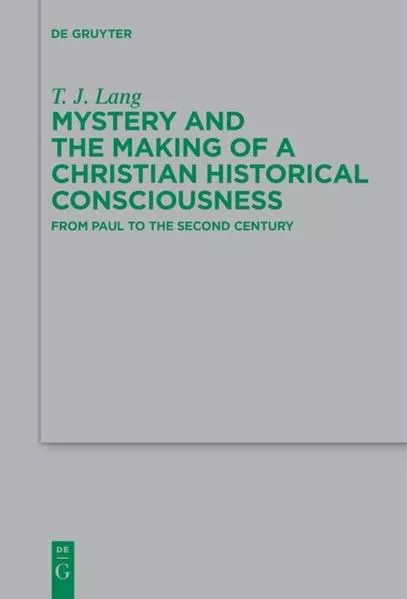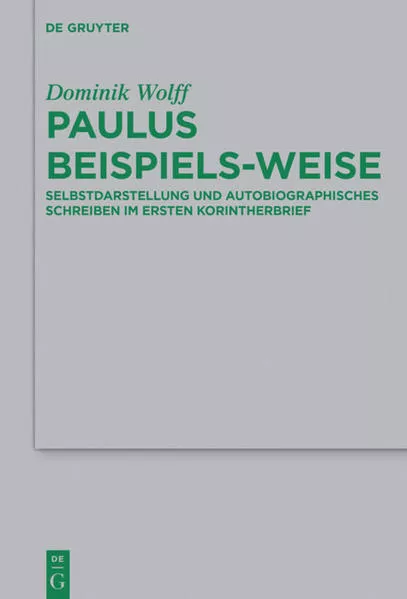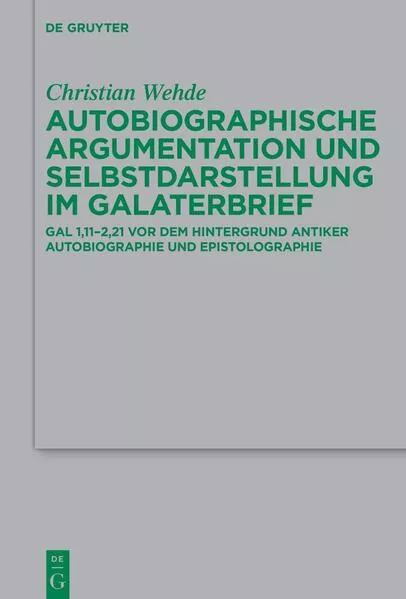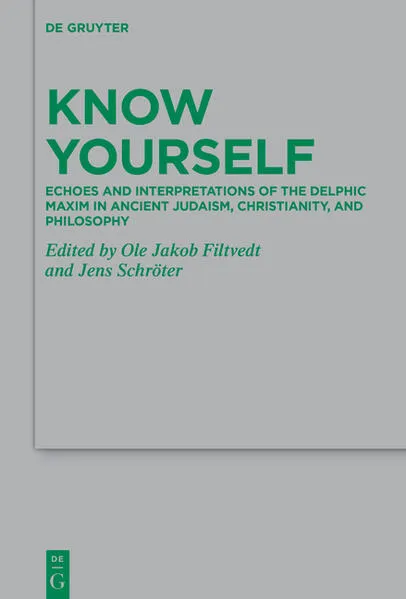Beihefte zur Zeitschrift für die neutestamentliche Wissenschaft
Mystery and the Making of a Christian Historical Consciousness
Chronologie aller Bände (1 - 4)
Die Reihenfolge beginnt mit dem Buch "Mystery and the Making of a Christian Historical Consciousness". Wer alle Bücher der Reihe nach lesen möchte, sollte mit diesem Band von T. J. Lang beginnen. Mit insgesamt 4 Bänden wurde die Reihe über einen Zeitraum von ungefähr 8 Jahren fortgesetzt. Der neueste Band trägt den Titel "Know Yourself".
- Anzahl der Bewertungen für die gesamte Reihe: 6
- Ø Bewertung der Reihe: 4.33
- Start der Reihe: 16.10.2015
- Neueste Folge: 31.12.2023
Diese Reihenfolge enthält 4 unterschiedliche Autoren.
- Band: 219
- Autor: Lang, T. J.
- Anzahl Bewertungen: 2
- Ø Bewertung: 5.0
- Medium: Buch
- Veröffentlicht: 16.10.2015
- Genre: Mystery
Mystery and the Making of a Christian Historical Consciousness
In general, theological terms this study examines the interplay of early Christian understandings of history, revelation, and identity. The book explores this interaction through detailed analysis of appeals to "mystery" in the Pauline letter collection and then the discourse of previously hidden but newly revealed mysteries in various second-century thinkers. T.J. Lang argues that the historical coordination of the concealed/revealed binary ("the mystery previously hidden but presently revealed") enabled these early Christian authors to ground Christian claims - particularly key ecclesial, hermeneutical, and christological claims - in Israel's history and in the eternal design of God while at the same time accounting for their revelatory newness. This particular Christian conception of time gives birth to a new and totalizing historical consciousness, and one that has significant implications for the construction of Christian identity, particularly vis-à-vis Judaism.
- Band: 224
- Autor: Wolff, Dominik
- Anzahl Bewertungen: 2
- Ø Bewertung: 3.0
- Medium: Buch
- Veröffentlicht: 12.06.2017
- Genre: Autobiographie
Paulus beispiels-weise
- Band: 249
- Autor: Wehde, Christian
- Anzahl Bewertungen: 0
- Ø Bewertung:
- Medium: Buch
- Veröffentlicht: 03.10.2022
- Genre: Autobiographie
Autobiographische Argumentation und Selbstdarstellung im Galaterbrief
Ist der autobiographische Abschnitt Gal 1,11-2,21 apologetisch motiviert? Diese forschungsgeschichtliche Mehrheitsmeinung wurde seit den 1980er Jahren zwar mehrfach, aber bislang nicht nachhaltig hinterfragt, daes bisherigen Studien an einer überzeugenden Gesamtschau auf Gal 1,11-2,21 mangelte.
Diese Studie will die Abfassungsmotivation des autobiographischen Abschnitts durch eine detaillierte exegetische Gesamtschau auf Gal 1,11-2,21 sowie den ganzen Brief neu beleuchten. Eine umfangreiche epistolographische Analyse des gesamten Galaterbriefes liefert zunächst keine Spuren einer apologetischen Abfassungsmotivation. Die Untersuchung der Verknüpfung von Gal 1,11-2,21 mit der Briefcorpuseröffnung Gal 1,6-10 zeigt auf, dass Paulus in der Eingangsthese des autobiographischen Abschnitts Gal 1,11-12 das εὐαγγέλιον-Motiv argumentativ aufnimmt.
In einer stringenten exegetischen Untersuchung von Gal 1,11-2,21 zeigt sich, dass Paulus mit Gal 1,13-2,21 in der Hauptsache eine autobiographische Argumentation zur Bestätigung der Eingangsthese Gal 1,11-2,21 führt, womit er die göttliche Herkunft seiner Evangeliumsverkündigung bestätigt. Gleichzeitig ermöglicht diese Argumentation ihm, sein eigenes Ethos gegenüber den Briefadressaten zu stärken.
- Band: 260
- Autor: Filtvedt, Ole Jakob
- Anzahl Bewertungen: 0
- Ø Bewertung:
- Medium: Buch
- Veröffentlicht: 31.12.2023
- Genre: Sonstiges



